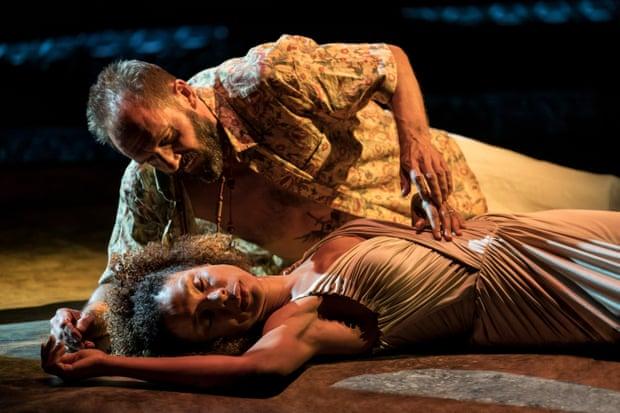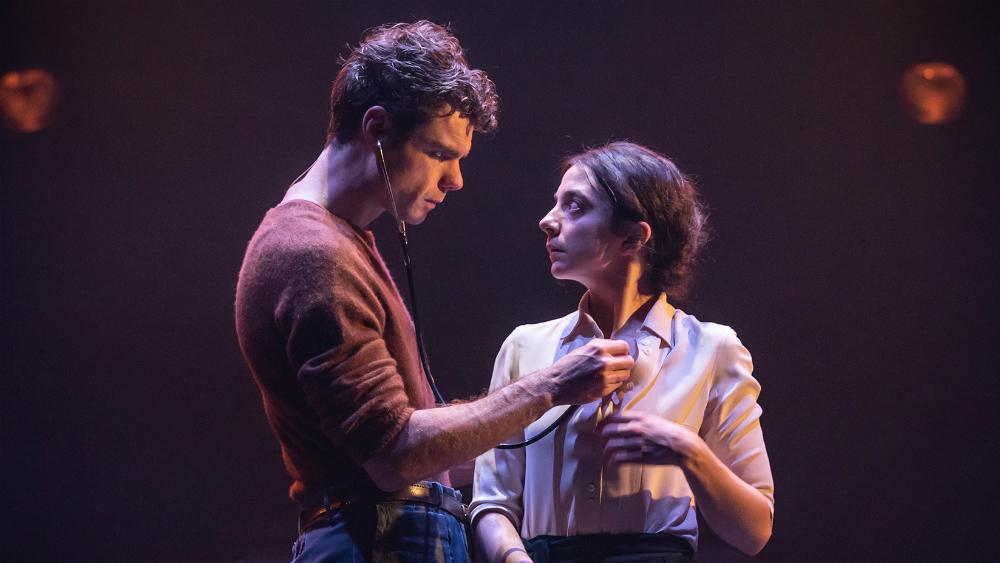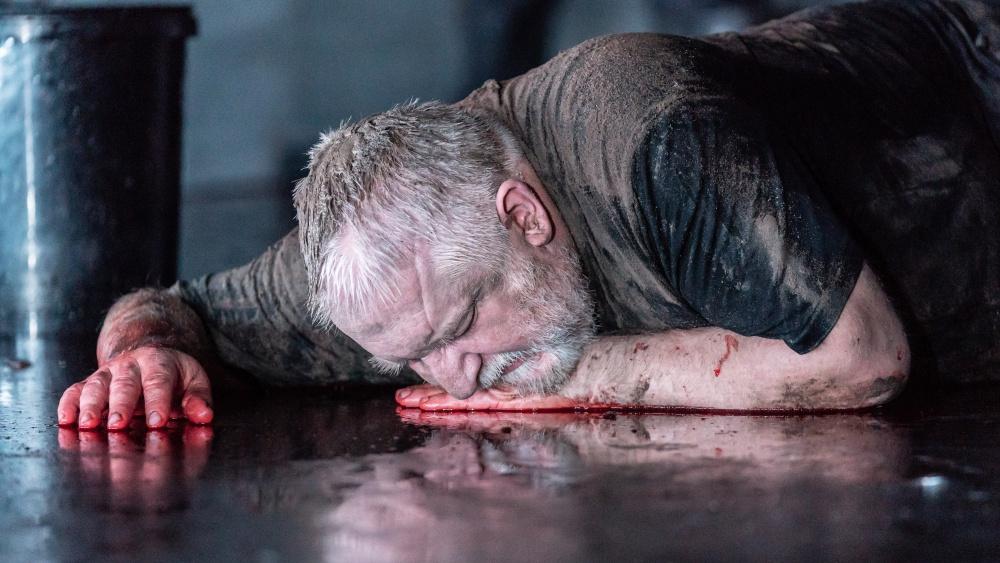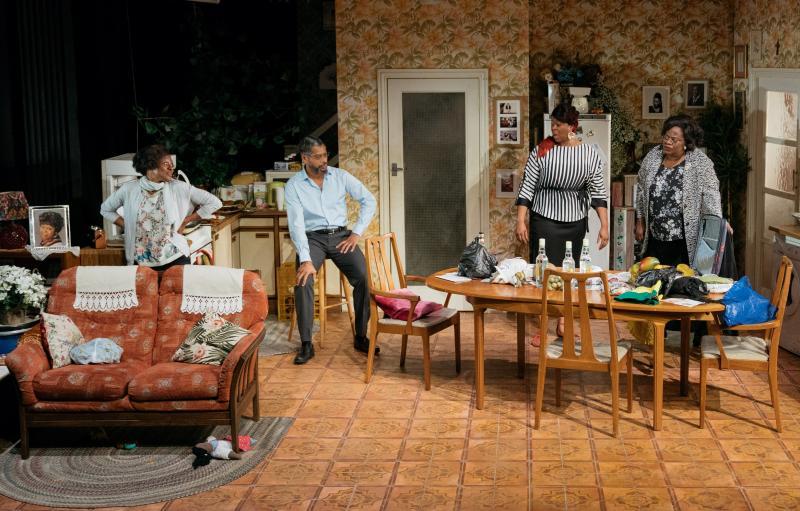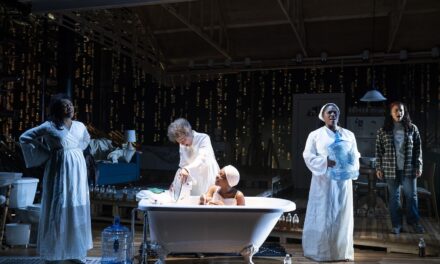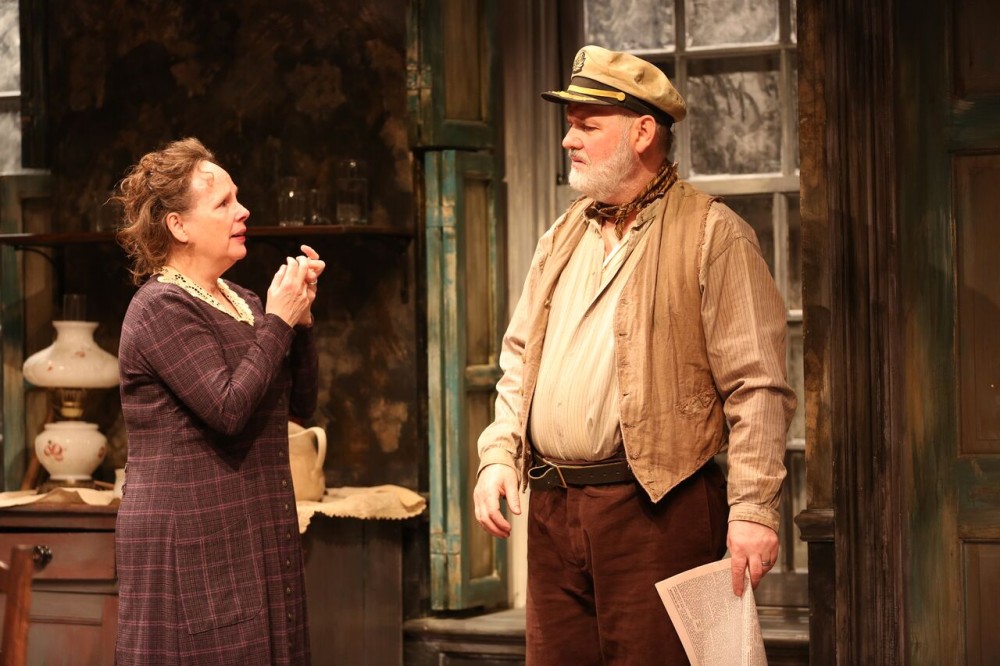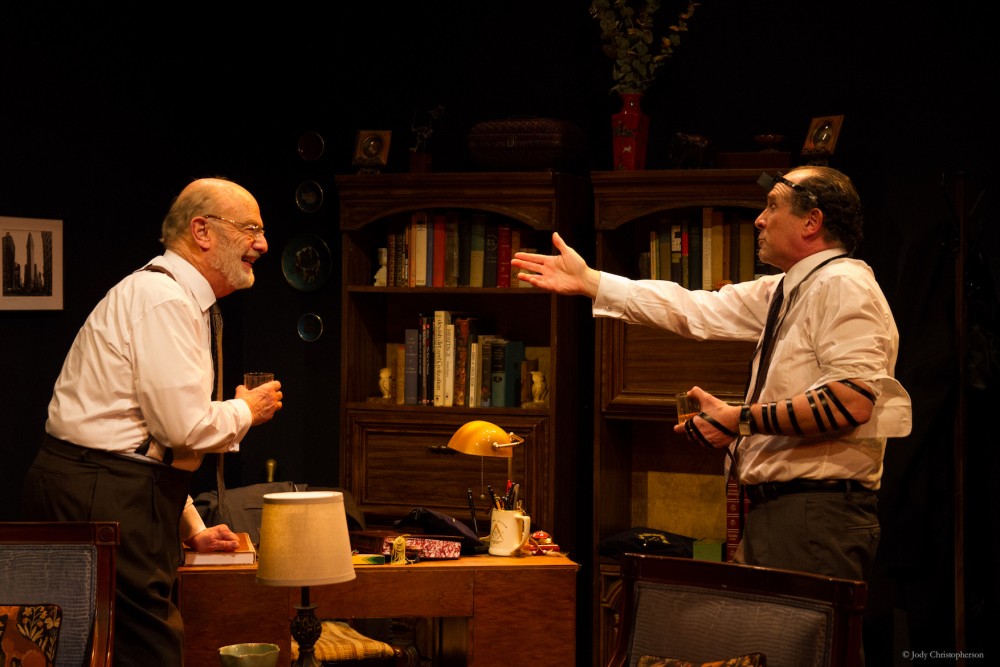by Carol Rocamora
“If we’re going to make a bold statement, then I want us to be really bold.”
So says Paulette Randall, director of the lively production of Marlowe’s Doctor Faustus now playing at Shakespeare’s Globe – who cast a black actress in the title role, as well as a female Mephistopheles.
London theatres this season are filled with bold and brilliant directorial statements – especially with the classics. The results are dazzling.
At the Gielgud Theatre on the West End, the marvelous Marianne Elliott has seized the right moment in time to revitalize, Company, Stephen Sondheim’s 1970 musical about marriage. How? By turning “Bobby”, the protagonist, into “Bobbie” – a gender switch (with Sondheim’s approval) that is yielding theatrical gold. It’s more than a daring choice – it’s an astute one, designed to give the story the fresh, contemporary perspective of a 35-year old single woman at a crossroads in her life. The original music remains intact, while Sondheim has rewritten some of the dialogue and lyrics to reflect Elliott’s vision.
A stellar ensemble of fourteen plays Bobbie’s various friends and lovers. Rosalie Craig is a luminous Bobbie with a lovely voice and an aching vulnerability. As her wise friend Joanne, powerhouse Patti LuPone is sensational, and her “Ladies Who Lunch” brings down the house. Bunny Christie’s set of modular New York apartments is clever and colorful, and Elliott maneuvers the ensemble with expert precision.
Elliott’s reimagining of Company is not only a reaffirmation of Sondheim’s lasting contribution to musical theatre. It’s also a testimony to Elliott’s stunning versatility as a director. Her recent productions – War Horse, The Curious Incident of the Dog in the Night-Time, Angels in America, and now Company – couldn’t be more different in their challenges. And yet look at the thrilling results…
A few blocks away, at the Duke of York Theatre, a fearless young director named Rebecca Frecknall has cleared the stage to allow Summer and Smoke, Tennessee Williams’s smoldering study of desire, to burst into flames. Tom Scutt’s set features a semi-circle of seven upright pianos, at which characters alternately play Angus MacRae’s haunting original music and then descend downstage to enact a searing story of unfulfilled love in a small Mississippi town. Patsy Ferran gives an astonishing performance as the daughter of a preacher tortured by repressed desire, and Matthew Needham plays an alluring young doctor, the object of her passion. Their erotic pas de deux – a conflict between body and soul – is raw, and the denouement is devastating. (An eight-member ensemble plays multiple roles).
Frecknall’s insight into Williams’s “delicate people” – as he once called his characters – is brilliant and penetrating. It’s a breathtaking directorial vision, elevating this 1947 classic to a new level of appreciation.
At the Almeida Theatre in Islington (where Summer and Smoke originated), another young director is making unconventional, arresting choices. Drawing from references in Shakespeare’s text, Joe Hill-Gibbins sets his swift-paced, 100-minute Richard II in a stark prison-like environment (bare stage, grey walls) with an ensemble of actors playing multiple (gender-fluid) roles. They wear jeans, sneakers, and gloves that double as weapons; battle scenes are initiated by “throwing down the gauntlet”.
The choice of the play itself is arresting, given its resonant themes of the perils of political life and those who wear the “the hollow crown” today. As Richard, Simon Russell Beale (marvelous as always) “speaks Shakespeare” fluently and flawlessly, and his “let us sit upon the ground and tell sad stories of the death of kings” is prophetic in its contemporary relevance. So too is John Gaunt’s speech – “this blessed plot, this earth, this realm, this England” – reminding us of the Brexit crisis currently roiling in that fair land.
Gibbons moves his phalanx of actors around the stage as if it were one living, breathing organism, creating images that are startling and exciting. Of special note is an ominous set of black buckets on the empty stage (ULTZ is the designer), which various actors toss upon one another during the violent battle scenes (watch out for the red paint!) It’s a vivid, altogether unforgettable Richard II.
At the Royal National Theatre, director Simon Godwin has filled the vast Olivier Stage with an eye-popping revival of Shakespeare’s Antony and Cleopatra.
The spectacular turnstile set (by Hildegard Bechtler) features numerous scenes from this updated tale of two lover/leaders of the ancient world doomed to self-destruction – including Cleopatra’s cubical-shaped palace, her lavish poolside gardens, various meeting rooms (with video images), and even a submarine with projections of sea battles. (Special bonus: a live snake at the end!) As Antony, Ralph Fiennes is charismatic, and his soliloquies are especially commanding. Sophie Okonedo is a sensational Cleopatra – passionate and mercurial. This exotic pair is supported by a superb cast of twenty, featuring a cunning Enobarbus (Tim McMullan) and an impressive young Caesar (Tunji Kasim). It’s thrilling entertainment, with the ultimate benefit of Shakespeare’s sobering political insight that “kingdoms are clay.”
Speaking of directorial brilliance in new work, it takes a seasoned director like Stephen Daldry to tackle Matthew Lopez sweeping new saga now playing on the West End. Set in New York’s gay community, The Inheritance is an emotionally cathartic epic that follows numerous intertwining stories of love, betrayal, and redemption over several decades (from 1981 to today). It’s a huge directorial assignment – a two-part seven-hour saga with a cast of fourteen playing over thirty roles, further enhanced by Lopez’s meta-dramatic idea that the play should be narrated by E. M. Forster, whose novel Howard’s End is Lopez’s inspiration.
In a bold visionary stroke, Daldry sets the production on a bare, raised stage, around which his large ensemble congregates and remains throughout the entire production. The play begins with Forster (as a character) asking the company: “He has a story to tell…how does it begin?” From there, members of this excellent cast enact scenes about gay men struggling to live, love, work and survive while the cloud of AIDS hangs over them. (The only female character is played by Vanessa Redgrave, in a surprise appearance in part II.)
“What does it mean to be a gay man?” one character asks. “No one ever taught us how to be ourselves, how to love”. Comparisons to Angels in America, Tony Kushner’s 1993 masterwork, will be inevitable. Let’s consider The Inheritance as a continuum, picking up the story where Kushner left off. Suffice it to say, you will be deeply moved.
Meanwhile, Vicky Featherstone, artistic director of the Royal Court Theatre, is directing the powerful premiere of The Cane, Mark Ravenhill’s scorching new play about caning – a terrifying tradition in the English school system that was eventually outlawed, but meanwhile has literally scarred its victims and their families alike. It’s a taut, tense 100-minute three-character drama, featuring a teacher who, after 45 years, is about to celebrate his retirement. But all is not well. A mob of angry students has surrounded his house, and his estranged daughter – herself an educator – has returned to confront him and worse, to judge him.
Such a frightening tale of “the sins of the father” requires radical directing choices – and Featherstone has made them with a stark mise-en-scène and a terse directing style fitting for a Pinter play. Chloe Lamford’s surrealistic set is like a haunted house, with a crumbling staircase that leads ominously to a closed door, and a ladder to an attic where the father’s terrible secret is hidden. (Watch that attic – it will change before your eyes.) Alun Armstrong gives a chilling performance, behind whose calm exterior lurks a terrible violence. Maggie Steed plays the helpless wife, and Nicola Walker is the vengeful daughter.
Finally, director Roy Alexander Weise has made the bold move of casting Natasha Gordon, the author of the terrific Nine Night, as the lead in her own play, now that it’s transferred from the National to the Trafalgar Studio. Gordon has the distinction of being the first black female writer with a production on the West End.
Nine Night is a rich, enlightening introduction to the rich culture of the British-Jamaican community. In Gordon’s domestic drama, grandmother Gloria has just died, and the extended members gather for a traditional nine-night ritual of feasting, dancing, storytelling, arguing, and inevitably, changing. The excellent ensemble features Gordon as Lorraine, the daughter who tries to hold the family together through tradition, and her estranged sister Trudy (Michelle Greenidge), who returns to settle deep grievances with her siblings.
Watching Gordon’s Nine Night, I’m reminded of the stoic mother in Lorraine Hansberry’s A Raisin in the Sun. As for the play’s deep spiritual and mystical content, August Wilson’s The Piano Lesson comes to mind. Altogether, Gordon has made a rich contribution to London’s theatre scene.


